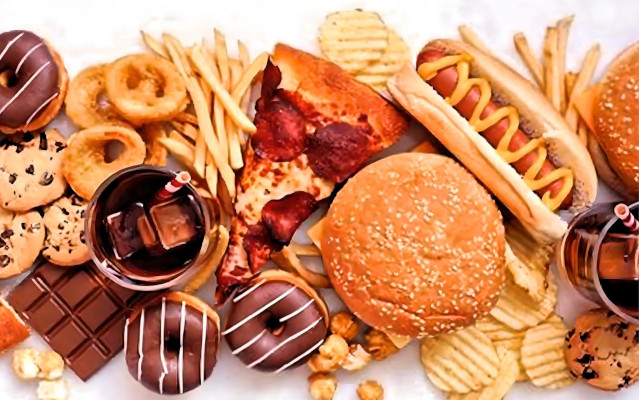The famous law firm Morgan & Morgan (USA) has started a multi-million dollar legal action against 11 Big Food giants – Coca Cola, General Mills, Kellogg, Kraft Heinz, Mars, Mondelēz International, Nestlé, PepsiCo, etc. – for having caused chronic diseases (type 2 diabetes and non-alcoholic fatty liver disease, at the age of 16) to his client Bryce Martinez. (1)
1) Ultra-processed foods, Big Food under accusation
The legal action under examination, the first of its kind, accuses the Big Food giants of having ‘purposely engineered their ultra-processed foods to be addictive and marketed to children, supposedly causing chronic disease in children‘.
Scientific literature is now agreement in attributing to ultra-processed foods a determining causal role in the significant increase in obesity and the risks of serious and chronic diseases. Cardiovascular and metabolic diseases, liver, kidney (including type 2 diabetes), intestinal diseases, tumors. In addition to the increased risks of premature aging, dementia and premature mortality (2,3,4,5).
The incidence of Non-Communicable Diseases (NCDs) has reached epidemic levels, globally, in recent decades. In step with the spread of consumption of ‘ultraprocessed foods’, which are estimated today to express in the USA approximately 67% of the energy intake of children and young people. (6)
2) Big Food, the strategies under accusation
The complaint details the strategies and activities that Kraft Heinz, Mondelēz and others would undertake ‘to hit kids with addictive, ultra-processed foods‘. Attaching internal memos, strategy meetings and the extensive research that the Big Food giants allegedly conducted for ‘exploiting our biology and neurology to create addictive substances‘. (7)
‘History ultra-processed foods are a prime example of companies prioritizing profits over the health and safety of the people who buy their products‘, said Mike Morgan, partner at Morgan & Morgan.
‘The consequences of the alleged actions of these companies have harmed thousands of children and families. Executives of the defendant companies have known for at least a quarter century that ultra-processed foods contribute to illnesses in children, but these companies have ignored the public health risks in pursuit of profits‘.
3) Ultra-processed foods and tobacco, the addiction
The prosecution argues that ultra-processed foods became widespread in the 80s and 90s, after corporations began investing in Big Food.
‘The big tobacco companies have dominated the American food system for decades and have presumably used similar strategies to develop and market ultra-processed foods as they did to increase cigarette sales, even conducting extensive research on the human brain’s responses to addictive chemicals.‘.
‘These companies allegedly using the tobacco industry’s playbook to target children, particularly black and Hispanic children, with marketing tie-ins embedded in cartoons, toys and games, along with social media advertising. Our goal is to hold these companies accountable for their alleged efforts to make ultra-processed foods as addictive as possible and get them into the hands of children‘ (attorney Rene Rocha, Morgan & Morgan). (8)
4) Provisional conclusions
Scientific studies indicate that ‘At least 14% of adults and 12% of children in the United States reportedly demonstrate behavioral indicators of addiction in response to ultra-processed foods’. The prosecution therefore states that ‘The problem remains pervasive among American children due to targeted marketing by the food industry.‘. (9)
‘The defendants would have maximized their profits at the expense of the health of American children‘, using production technologies and marketing strategies similar to those adopted by the tobacco industry. Which has recently distinguished itself, it is worth adding, also for investments aimed at creating nicotine addiction without tobacco. (10)
The cause under examination is the result of over a year of research and investigations, with the support of dozens of scientific studies. And it aims to obtain the conviction of the eleven Corporations to million-dollar sanctions, in the form of ‘exemplary and punitive damages’. Its object, regardless of the outcome, will presumably also have an impact on the ‘due diligence’ of large companies with respect to ESG criteria. (11)
Dario Dongo
Note
(1) Civil action complaint by Bryce Martinez against Kraft Heinz et al. Philadelphia, Court of the Common Pleas. December 10, 2024 https://tinyurl.com/nd9ra446
(2) Marta Strinati. Identikit of ultraprocessed foods, excess of critical nutrients and ‘cosmetic’ additives. GIFT (Great Italian Food Trade).
(3) Dario Dongo, Andrea Adelmo Della Penna. Genetic modifications and aging, ultra-processed foods vs Mediterranean diet. GIFT (Great Italian Food Trade).
(4) Marta Strinati. Greater risk of dementia for those who consume ultra-processed foods. I study. GIFT (Great Italian Food Trade).
(5) Dario Dongo, Andrea Adelmo Della Penna. Ultraprocessed foods, disease and premature mortality. I study in Italy. GIFT (Great Italian Food Trade).
(6) Zhe Fang et al. Association of ultra-processed food consumption with all causes and cause specific mortality: population based cohort study. BMJ 2024;385:e078476. Doi: https://doi.org/10.1136/bmj-2023-078476
(7) Dario Dongo, Sabrina Bergamini. Ultraprocessed foods and food addiction, scientific study. FT (Food Times. May 16, 2019
(8) Morgan & Morgan Files Lawsuit over Allegedly Harmful, Addictive Ultra-Processed Foods. December 10, 2024 https://tinyurl.com/ykch7vff
(9) Dario Dongo, Sabrina Bergamini. Climate, predatory marketing, and children’s health. Unicef Report. FT (Food Times). February 21, 2020
(10) Marta Strinati. Nicotine Bags, the New Frontier of Addiction. Egalité. 11.12.24
(11) Dario Dongo. Directive (EU) No 2024/1760 on Corporate Sustainability Due Diligence, the ABCs. FT (Food Times). September 23, 2024
Dario Dongo, lawyer and journalist, PhD in international food law, founder of WIISE (FARE - GIFT - Food Times) and Égalité.








